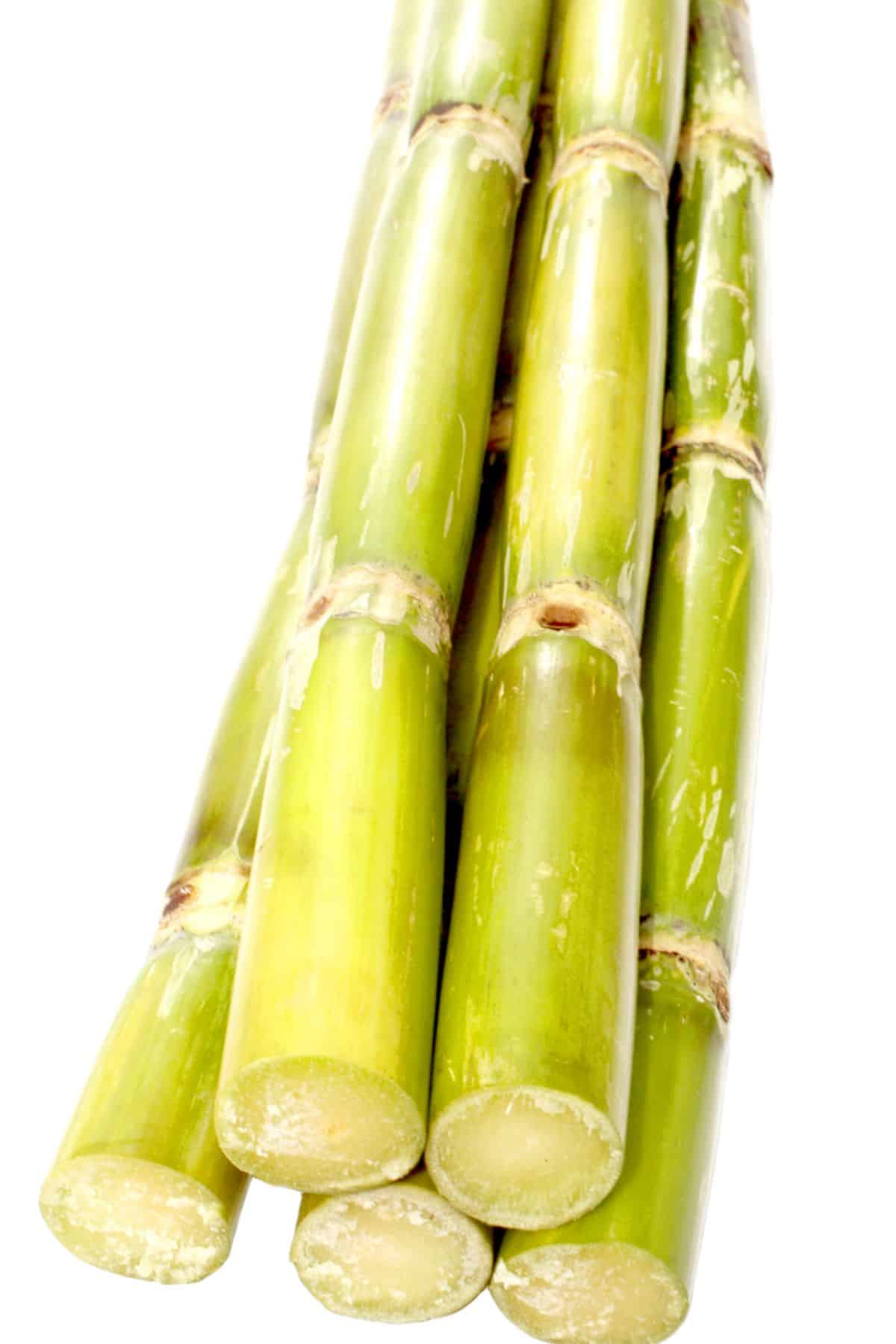The Scientific Research Behind Cane Sugar Processing: Just How Sweet Taste is Improved
The Scientific Research Behind Cane Sugar Processing: Just How Sweet Taste is Improved
Blog Article
A Comprehensive Summary of the Health and Economic Implications of Cane Sugar Handling on Local Neighborhoods
Walking cane sugar handling plays an essential role in shaping the financial landscape of neighborhood neighborhoods, supplying work opportunities and promoting ancillary industries. The health and wellness ramifications associated with high sugar consumption can not be forgotten, as they add to increasing rates of excessive weight and diabetes mellitus.
Financial Benefits of Cane Sugar Handling
Walking stick sugar processing supplies considerable economic advantages that extend beyond the prompt agricultural sector. The cultivation and processing of sugarcane produce numerous work possibilities, from farming to production and distribution. This employment generation not only supports local economic situations however additionally cultivates neighborhood growth by supplying stable revenue sources for family members.
Additionally, the sugar sector promotes ancillary services, consisting of transport, equipment supply, and product packaging services (Cane Sugar Processing). As these sectors expand, they add to a more robust financial framework, boosting overall neighborhood resilience. The export possibility of refined cane sugar better enhances economic advantages, positioning regions as competitive players in international markets
Financial investment in modern processing facilities can result in increased performance and effectiveness, consequently minimizing waste and optimizing source use. This shift not only benefits the local economic situation but likewise supports sustainability efforts by reducing ecological impacts.
Furthermore, the income created from walking cane sugar handling can be reinvested in local facilities, education and learning, and medical care, advertising all natural community growth. In general, the economic benefits of cane sugar processing are diverse, offering a foundation for sustaining success in farming areas.
Health And Wellness Dangers Connected With Sugar Intake
Too much sugar usage postures significant health threats that necessitate serious attention. High consumption of sugarcoated, especially from refined beverages and foods, has been connected to many health issues. One of one of the most important problems is excessive weight, as sweet diets add to an enhanced caloric consumption without supplying crucial nutrients. This extra can lead to metabolic problems, including kind 2 diabetes mellitus, which has become increasingly widespread in both children and adults - Cane Sugar Processing.
Additionally, high sugar consumption is connected with cardio illness. Raised blood glucose degrees can cause insulin resistance, a precursor to numerous heart-related issues. Furthermore, sugar can have damaging effects on dental health, leading to cavities and gum tissue disease, as germs in the mouth grow on sugar, generating acids that erode tooth enamel.
Moreover, arising research recommends a potential link in between high sugar consumption and mental health and wellness problems, such as clinical depression and stress and anxiety. As communities grapple with these health and wellness threats, it becomes important to promote recognition and urge much healthier dietary options. Resolving sugar consumption is vital not only for private health and wellness yet additionally for the general well-being of neighborhood communities, highlighting the need for extensive public wellness strategies.
Ecological Effects of Sugar Production
Often overlooked in discussions regarding sugar's effects is the significant environmental impact of sugar manufacturing. The farming of sugarcane usually necessitates extensive land usage, leading to logging, loss of biodiversity, and disturbance of neighborhood ecological communities. The conversion of woodlands and wetlands into sugar haciendas can result in habitat destruction, harmful countless varieties and altering ecological equilibrium.
Furthermore, sugar manufacturing is resource-intensive, consuming substantial amounts of water for watering. This can result in exhaustion of neighborhood water sources, adversely influencing both agricultural practices and community accessibility to clean water. Additionally, using chemical fertilizers and chemicals in sugarcane farming can contribute to dirt degradation and water pollution, as drainage from these chemicals goes into nearby rivers and lakes, impacting marine life and human health and wellness.
The environmental impact includes the handling phase, where power consumption and waste generation more aggravate environmental issues. Air pollution from melting sugarcane areas, along with greenhouse gas exhausts, add to environment modification. As such, the ecological implications of sugar manufacturing warrant severe consideration, prompting stakeholders to adopt even more sustainable techniques to reduce these adverse impacts on local environments and communities.
Task Production and Neighborhood Development
The environmental obstacles posed by sugar manufacturing are commonly counterbalanced by its capacity for financial benefits, especially in task creation and community development. The walking cane sugar market functions as a substantial source of employment in lots of country areas, supplying work across different ability degrees, from agricultural labor to processing and circulation duties. This employment not only sustains private family members yet also adds to the total economic vitality of local areas.
Moreover, the establishment of sugar processing centers stimulates secondary organizations, such as transport solutions, equipment supply, and maintenance providers. As these companies flourish, they create additional tasks and bolster regional economic climates. The income produced from the sugar market likewise causes raised tax revenues, which can be reinvested into right here community services such as framework, medical care, and education and learning advancement.
In addition, the sugar market frequently participates in area growth initiatives, such as sustaining local colleges and health and wellness programs, thus enhancing the high quality of life for residents. By cultivating solid community ties and advertising economic growth, the walking cane sugar processing field plays an important duty in uplifting local populations, making it an important part of lasting growth strategies in sugar-producing areas.
Harmonizing Wellness and Economic Development
In browsing the complexities of walking cane sugar processing, a critical obstacle lies in balancing health and wellness factors to consider with economic growth. The sugar industry dramatically adds to regional economies by generating tasks, stimulating associated markets, and boosting tax revenues. Nonetheless, the health effects associated with extreme sugar usage can bring about chronic conditions such as excessive weight, diabetes, and cardiovascular problems, which can burden public health and wellness systems and lessen labor force efficiency.

Additionally, governing structures can play a pivotal function in guiding industry practices towards even more sustainable and health-conscious approaches. By promoting cooperation between federal government bodies, health organizations, and the sugar sector, communities can navigate the dichotomy of health and economic growth, making certain that the benefits of walking stick sugar processing are equitably shared while focusing on public health.
Conclusion
To conclude, the handling of walking cane sugar offers both substantial financial advantages and remarkable wellness threats for neighborhood areas. While it fosters work production and boosts local growth, the affiliated wellness problems, especially regarding obesity and diabetes, necessitate a careful harmonizing act. By advertising liable usage and investing in community education and lasting techniques, it is feasible to take full advantage of economic advantages while reducing adverse wellness results, consequently ensuring Discover More a healthier future for neighborhood populations.
Additionally, sugar can have destructive results on dental health and wellness, resulting in tooth cavities and gum condition, as microorganisms in the mouth flourish on sugar, producing acids that wear down tooth enamel.
Dealing with sugar usage is essential not just for specific health and wellness however likewise for the overall health of regional neighborhoods, emphasizing the demand for detailed public wellness approaches.
Often forgotten in discussions concerning sugar's implications is the substantial environmental influence of sugar production. The health and wellness effects connected with too much sugar consumption can lead to persistent conditions such as excessive weight, diabetic issues, and cardio problems, which can worry public health systems and lessen workforce efficiency.

Report this page